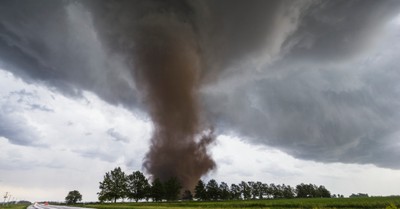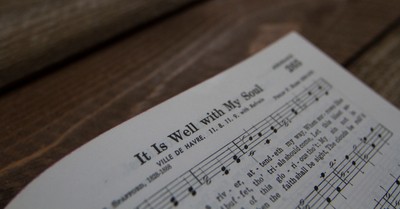What is the Holy Spirit?
- Updated Aug 24, 2010
God's big, right? He's huge. Unimaginably gigantoid. And so we naturally have that sense of God being out there somewhere, of his abiding in the cosmos, residing in the heavens, in an almost detached sense overseeing and directing everything that happens everywhere in the universe. We have that intuitive understanding of God the impenetrable, the inscrutable, the unknowable.
And that makes sense: We are, after all, talking about the Forever Beyond here, about the Alpha and Omega of all that is, has been, or ever will be. So it makes sense that about God we should have this very profound sense of eternal otherness.
And in a very real sense that is who God is. God the Father is God above.
And then, through Jesus Christ, we are given a vastly different way to appreciate and understand God. Here is a God who is also fully human, a God who is anything but detached from our fears and trials. Here is a God who loves us so much that he incarnated himself as one of us, and then willfully had himself brutally murdered so that we might even begin to grasp the depth of his commitment to our present and eternal well-being. Even if we can't fully understand the whole of Jesus, we know that he is a God of human, earthly action, of persuasion, conviction, love, anger, anguish. We know that in becoming Jesus, God became someone with whom we can definitely relate and even identify. More importantly, Jesus proves to us that God is someone who can forever deeply and truly identify with us.
Sweet Jesus, indeed. This is a God whom we know knows every last bit of trouble we will ever suffer.
First we have God the Father above us--and then we have God the Son below that, down here on earth, abiding with us where we live and breath and die.
But ultimately, physically, Jesus left us, didn't he? After his stunning resurrection, the Son went back up into heaven, where, as the Bible tells us, he resumed his place "at the right hand of the Father."
And then there we were, left without the corporeal, bodily God it was such joy to have walking among us.
And that breaks our hearts. And over time it's also bound to make it harder for us to properly remember and honor God. We humans are, after all, inclined to be more impressed and persuaded by what's before us than we are by what's eons and eons behind us.
God, of course, knows this about us. He knows we can't live on memories and ancient stories alone. He knows that in order to keep us inspired and engaged we need something dynamic, immediate, real, vibrant, deeply individualized, profoundly personal.
And so, out of his infinite love for us, he arranged to leave behind in the heart of every one of his believers the entirety of himself--that miraculous, clear, unmistakably holy presence inside each one of us that we are all very pleased to call the Holy Spirit.
The Holy Spirit is God within. It's all of God, as close to any believer as his or her next heartbeat.
From John 14 (this is Jesus speaking): And I will ask the Father, and he will give you another Counselor to be with you forever—the Spirit of truth. The world cannot accept him, because it neither sees him nor knows him. But you know him, for he lives with you and will be in you. I will not leave you as orphans; I will come to you. …. But the Counselor, the Holy Spirit, whom the Father will send in my name, will teach you all things and will remind you of everything I have said to you. Peace I leave with you; my peace I give you.
****
For more on this subject, see also my post, "The Trinity Explained in Four Sentences: A Look at John 1:1-4"
Join me/us on my Facebook page!



















